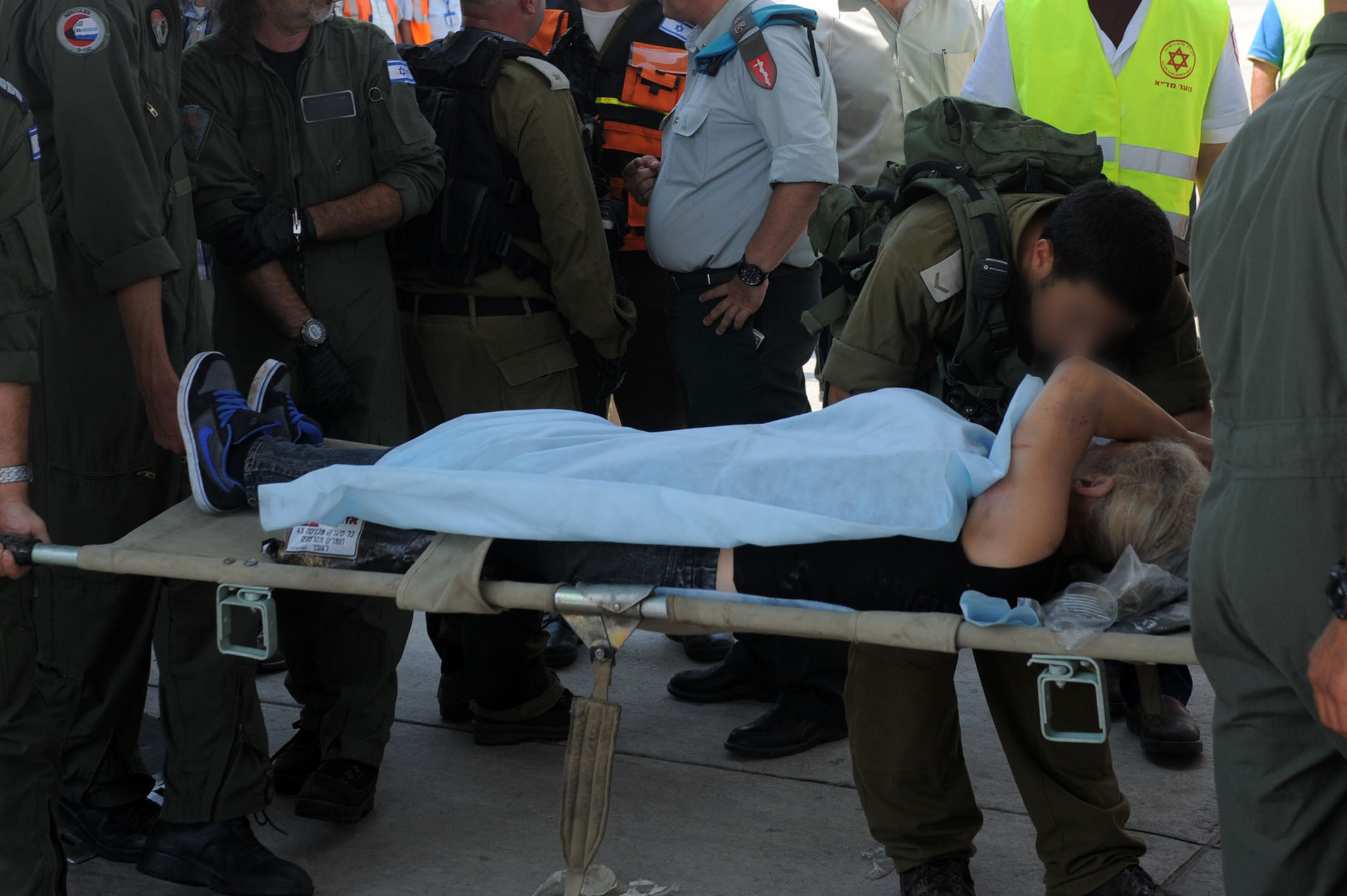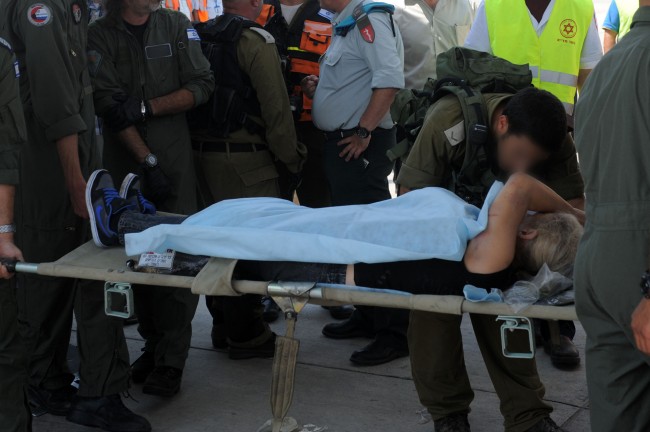Ranking Hezbollah on the anti-terrorist list, a very short idea
(BRUSSELS2) The Bulgarian government is certain that it is Hezbollah, or at least its military wing, which is believed to be behind the Bourgas attack which on 18 July 2012 targeted a bus with Israeli tourists (6 dead - 5 Israelis and 1 Bulgarian - and several wounded). He thus informed the 27 during the last meeting of the COPS - the Political and Security Committee of the Union - on Wednesday (6 February). Information without further debate for the moment. The COPS agenda was already full last Wednesday. COPS ambassadors could discuss it again soon, as could certain working groups of the "27". Before a discussion at the level of Foreign Ministers on February 18.
Concrete evidence...
Interior Minister Tsvetan Tsvetanov had effectively announced on Tuesday (February 5) that he had "evidence", after a meeting of the national security council, that two of the perpetrators of the attack, one with a passport Australian, the other Canadian and having resided in Lebanon, " belonged to the military wing of Hezbollah ". The third actor, who carried the bomb and died in the attack has not yet been identified.
The next day (February 6), Foreign Minister Nickolay Mladenov in an interview on Bulgarian television (transcribed by Sofia news agency) that the attack had indeed been " organized and inspired by members of Hezbollah's military wing at this stage of the investigation ". The minister, considering that Bulgaria had to bring the perpetrators to justice, to cooperate with the authorities in Lebanon and elsewhere (...) and that joint action should be adopted at Union level”. Sure Al-Arabiya went a step further, saying that Hezbollah's involvement " would not be without consequences and that the listing on a Hezbollah anti-terrorist list was " on the table ". A statement that had something to delight Israel, which for years has wanted such a sanction. But sometimes you have to be wary of "concrete" evidence.
A doubt, or rather doubts...
The case is still ongoing
The actual evidence of the involvement of the Lebanese movement is disputed in Bulgaria, at least at this stage of the investigation. It is, in fact, Prime Minister Boiko Borissov who made this statement, toasting the courtesy of the prosecutor in charge of the investigation, whose role it is normally. The leader of the opposition (socialist) Sergei Stanishev (president of the PES), reacted very quickly, denying the seriousness of this media outing. " The case is still ongoing. And we can't talk about conclusive evidence as far as the direct perpetrators are concerned, let alone the organization behind this tragic event » he thus declared according to SNA. The electoral campaign (elections in July) may explain the behavior of one and the other. But this is not enough.
Same story at the general prosecutor's office. For Prosecutor General Sotir Tsatsarov, the prosecution does not have " insufficient evidence to raise charges in Burgas airport bombing case ". According to his comments published in the daily newspaper Sega, " the investigation is not closed, it continues because the answers to the rogatory letters sent to Morocco, Israel, Australia and Lebanon have not yet been received”.
The method does not quite stick
In Brussels, too, we have doubts. The attack is not signed. It's not " not used to movement commented an attentive European diplomat from the Middle East. Likewise, it generally aims targets that are more military or more linked to Israeli power and often in the Middle East, rarely in Europe (at least in recent times).
A very close proximity between Sofia and Tel Aviv
These doubts are accentuated by the geopolitical positioning of Bulgaria as well as its internal situation. We know how close Sofia is to Israel and Washington. A series of agreements were thus signed in July 2011 between Bulgaria and Israel on economic and energy issues. One of them related in particular to military cooperation between the two countries with training, training and upgrading. Several ministerial visits took place on both sides. For Israel, blacklisting Hezbollah is an old refrain. Immediately after the attack, Israel began by pointing its finger at Iran. Israeli Prime Minister Benjamin Netanyahu denouncing “ an Iranian terrorist offensive. All signs lead to Iran “he estimated in a press release taken up by the press agencies. Today, of course, Israel has loudly welcomed this Bulgarian declaration. A little "phoned" all the same...
A poisonous political climate
Even if this should not normally play a role in such a serious case, we cannot help but point out certain local constants. Prime Minister Borissov is, himself or his entourage, the subject of several accusations or rumors of corruption. And we also know how important the weight of this practice is in Bulgaria. Did not a former European Commissioner confide before leaving his mandate that there was not even corruption in the strict sense of the term, in Bulgaria, because it is within the State itself? when the corrupter is himself the principal "...
Debate launched at European level
We therefore understand the caution with which the European authorities have approached the question.
Very cautious reaction from the High Representative
Reacting on Tuesday (5 February) the High Representative simply " note of the results of the investigation into the terrorist attack of July 18 in Burgas. The implications of the investigation must be seriously assessed as they relate to a terrorist attack on EU soil. (...). The terrorists who planned and executed the Burgas attack must be brought to justice. " The High Representative also stresses " the need to reflect on the outcome of the investigation. The EU and Member States will review the appropriate response based on all elements identified by investigators »
One of the options but not the only one
Asked during the midday briefing on Wednesday by an Italian colleague, the High Representative's spokesperson added that yes, the listing of terrorist organizations is " one of the options. But it is not the only one ". " We watch and discuss the appropriate response. There are several options. Other options include a " reinforcement of the action of Europol and Eurojust, legal action or the political option”.
All-out discussions on the sidelines of the European summit
According to our information, Bulgaria has not requested the inclusion of Hezbollah on the anti-terrorist lists. Thursday evening, on the sidelines of the European summit, the Bulgarian Foreign Minister, Mladenov, thus met Catherine Ashton. Nothing has filtered from this interview. And similarly, Sergei Borissov should meet his British counterpart, David Cameron. Among other subjects, the question of the Burgas attack should be addressed. But at Me Ashton's office, we want to be very, very careful. " We must first study the results of the investigation ” told B2 a European diplomat “ and decide how to proceed. We are only at the beginning of the process ».
Sanctions: a very delicate issue
A decision taken unanimously and not automatically
The question of sanctions against a "terrorist" movement is not an automatic measure. It is the result of a unanimous decision. France is against such a decision (along with Italy and several Mediterranean countries). The Netherlands (defender of Israel) like the United Kingdom are for it. So the debate has only just begun. The point could be put on the agenda of the meeting of EU foreign ministers on February 18.
A matter of evidence
It is a mixed political and legal process which does not normally intervene prior to a judicial inquiry but rather in its conclusion (or if it turns out to be blocked). The sanction of the perpetrators of an attack thus first involves their arrest as well as those of their instigators and sponsors and their trial. To date, there has not yet been an arrest warrant or an indictment apparently issued, nor yet a refusal to hand over its authors.
An eminently political process
It is an eminently political process, the basis of which is not judicial but political. This is - as the guidelines on sanctions point out - " bring about a change in policy or activity on the part of the country, region, administration, entities or individuals concerned”. However, assuming that the attack is attributable to him, attacking a movement which is in power in a legitimate way in a country like Lebanon, placed in the heart of the Syrian turmoil, is not taken lightly. The risk of weakening the country must be well assessed.
A breathless sanctions policy?
The European sanctions policy is now beginning to reach its limits. The European Union sidelined Hamas, the PFLP... Without much result. Otherwise that of depriving oneself of an interlocutor in the Palestinian question. Iran is on the sidelines because of nuclear proliferation, Syria also because of civil war. At this rate, the entire Middle East will soon be on the Union's anti-terrorist lists. This, in a more than tormented setting. The situation in Iraq is not really very stable. Same in Egypt. Tensions are rising in Jordan. In short... this is not the time to lose Lebanon which is already in the delicate management of a conflict on its borders and the reception of thousands of refugees.
(NGV)
(*) As an exception, we can note the attack in Argentina in 1994. The campaign of attacks in France in 1985-1986 like the attack against the Drakkar and the airport in Beirut in 1983 are also attributed to him. But we were in another era
Read also: Attack in Bulgaria: Interpol releases a composite portrait of the suicide bomber


The real question is: does the EU's opinion really matter?
If a movement is banned and its funds frozen across the European Union, there may be some consequences. So, yes, the opinion of the EU counts…